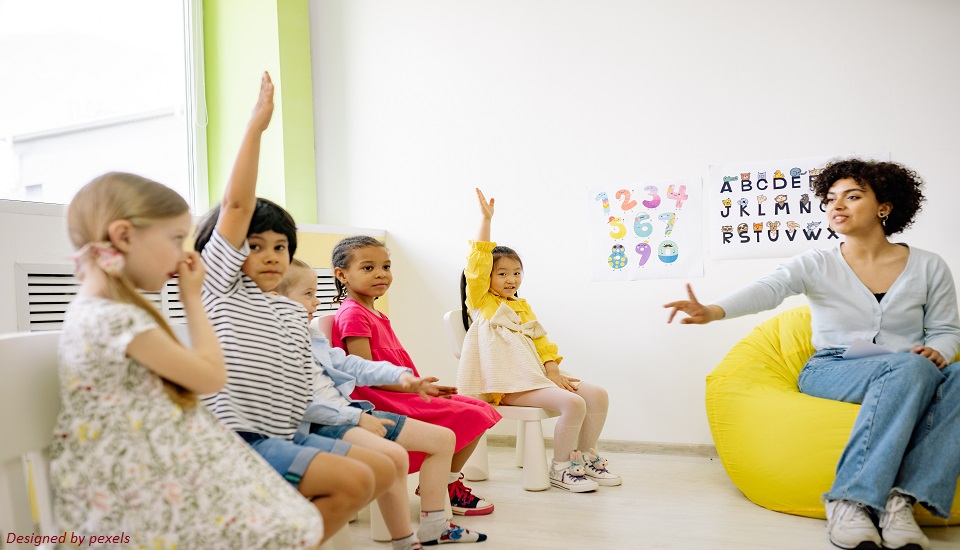Teachers while pursuing a Diploma in Montessori Teacher Training are taught that in psychology, empathy currently has two common approaches- perspective talking and shared emotional response. Perspective talking is also known as cognitive empathy and it generally occurs when you can imagine yourself being in the same situation as the other. However, the shared emotional response is also known as effective empathy and it occurs when you can share another person's emotions.
As a kid being able to show empathy might not come as naturally as adults. However, you as a Montessori preschool teacher must be equipped with strategies to teach compassion to your kids and how to value perspectives. However, if you are not sure how to foster empathy in your children, look at these 5 insightful ways.
5 Tips To Boost Empathy In Your Kids
Here are 5 strategies to help you build cognitive and affective empathy in your students:
1. Model Empathetic Behavior
Children are great imitators, and they learn empathy both by experiencing and watching people around them. Since they spend most of their time in school these days, you as a Montessori preschool teacher must be able to develop secure and trusting attachments with them. When you empathize with the children, they want to model your behavior, adopt your values, and hence build a sense of empathy for others.
Moreover, children learn a great deal just by watching us. Hence make sure to embody only positive energy when you are around them. Consider engaging yourself in community services, or practicing self-care and self-reflection. As a Montessori preschool teacher, you should read the room and build the most effective strategies to teach empathy to your kids as per their learning abilities.
2. Use Literature For Different Perspectives
Literature if taught correctly can be a fun way of teaching different perspectives to students. In a Montessori school, you can use the storytelling technique to depict various situations and how to react to them. There are numerous kids' stories that have a moral undertaking to them, you can use these stories and ask the kids for their perspectives.
You can also ask the kids to enact these stories differently so that you understand the mindset of the children. Additionally, while teaching, break them into small groups and teach them the difference between disagreement and argument. They should be able to respect each opinion and hence build cognitive and affective empathy.
3. Practice Active Listening
One of the most common traits of building empathy is being an active listener. However, being able to listen effectively is also the most challenging task, especially for kids. Thus, as a Montessori preschool teacher, you should plan appropriate strategies and help the students devote their time to listening to one another.
Hold sessions where you teach them what is active listening and how exactly they should do it. Ask them to stop all their tasks and give their undivided attention to the speaker. Teach them to engage with the speaker by maintaining eye contact and body gestures. Moreover, acknowledging that with every session they are learning something interesting and new. Furthermore, at the end of each session ask them to paraphrase and analyze what their peers have spoken to understand their perspective.
4. Provide Opportunities To Practice Empathy
Every human is born with the capacity of displaying empathy, however, it needs to be nurtured from an early age. Thus, in a Montessori school, teachers need to develop their emotional intelligence. As we all know, practice makes perfect, thus, just teaching empathy to kids will not work. They need to be given opportunities to practice the emotion as well.
Try to hold regular group discussions and encourage the children to voice their feelings about their peers. Give them role-play situations that will reflect care and compassion. Discuss the ethical dilemmas of the children and appreciate various perspectives. Being able to practice empathy will increase their natural reflex and they will be able to understand others' feelings better.
5. Help Manage Feelings
Sometimes a child's feelings might be too overwhelming as they might have a rush of emotions at the same time. Thus, they will rely on you as a guide and mentor. Hence, you should help them develop self-control and manage their feelings effectively. Moreover, caring too much about others can also give rise to negative feelings.
Like while listening to their peers about their experiences it is natural for the kids to feel hurt, anger, pain, shame, envy, etc. These feelings are prejudices and often stereotypes of embodying empathy. Thus, children should be taught appropriate measures to deal with such situations for positive outcomes.
The Bottom Line
Being aware of one's feelings and thoughts offers you an edge in understanding others' perspectives. Thus, empathy can never be practiced if you are not compassionate and understanding to yourself. Sometimes as a teacher you might be stressed and overwhelmed, and these emotions can be transferred to the class. Thus, consider having a Diploma in Montessori Teacher Training to manage yourself better and be a role model to your kids.
Leave a comment!
Written By : Sanjana








